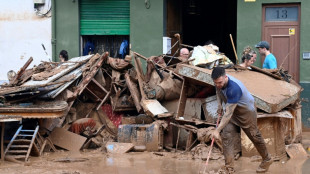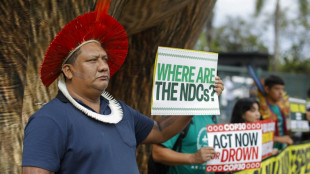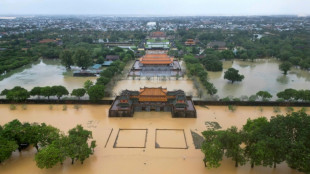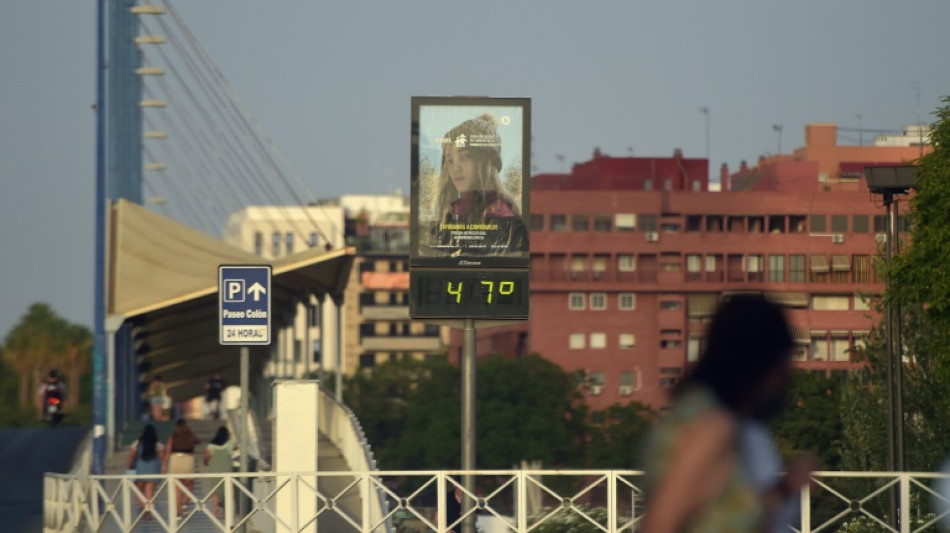
-
 Liverpool crisis mounts after League Cup exit against Palace
Liverpool crisis mounts after League Cup exit against Palace
-
Kane scores twice as Bayern set European wins record

-
 Radio Free Asia suspends operations after Trump cuts and shutdown
Radio Free Asia suspends operations after Trump cuts and shutdown
-
Meta shares sink as $16 bn US tax charge tanks profit

-
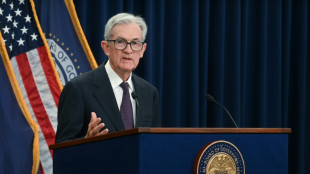 Dollar rises after Fed chair says December rate cut not a given
Dollar rises after Fed chair says December rate cut not a given
-
Google parent Alphabet posts first $100 bn quarter as AI drives growth

-
 Rob Jetten: ex-athlete setting the pace in Dutch politics
Rob Jetten: ex-athlete setting the pace in Dutch politics
-
Juve bounce back after Tudor sacking as Roma keep pace with leaders Napoli

-
 Favorite Sovereignty scratched from Breeders' Cup Classic after fever
Favorite Sovereignty scratched from Breeders' Cup Classic after fever
-
Doue injured as PSG held at Lorient in Ligue 1

-
 Leverkusen win late in German Cup, Stuttgart progress
Leverkusen win late in German Cup, Stuttgart progress
-
Jihadist fuel blockade makes life a struggle in Mali's capital
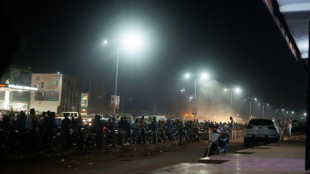
-
 Uber plans San Francisco robotaxis in Waymo challenge
Uber plans San Francisco robotaxis in Waymo challenge
-
Paramilitary chief vows united Sudan as his forces are accused of mass killings
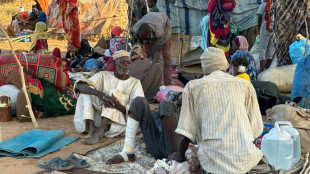
-
 Trump, Xi to meet seeking truce in damaging trade war
Trump, Xi to meet seeking truce in damaging trade war
-
Divided US Fed backs second quarter-point rate cut of 2025
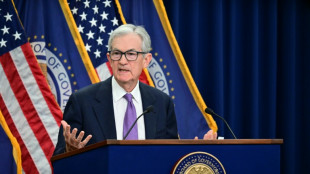
-
 'Amazing' feeling for Rees-Zammit on Wales return after NFL adventure
'Amazing' feeling for Rees-Zammit on Wales return after NFL adventure
-
'Cruel' police raids help, not hinder, Rio's criminal gangs: expert

-
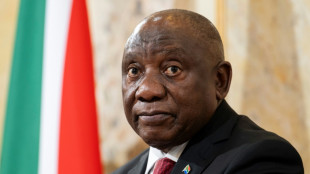 S. African president eyes better US tariff deal 'soon'
S. African president eyes better US tariff deal 'soon'
-
Sinner cruises in Paris Masters opener, Zverev keeps title defence alive

-
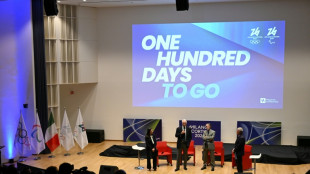 Winter Olympics - 100 days to go to 'unforgettable Games'
Winter Olympics - 100 days to go to 'unforgettable Games'
-
Kiwi Plumtree to step down as Sharks head coach

-
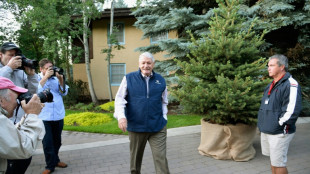 US media mogul John Malone to step down as head of business empire
US media mogul John Malone to step down as head of business empire
-
'Never been this bad': Jamaica surveys ruins in hurricane's wake
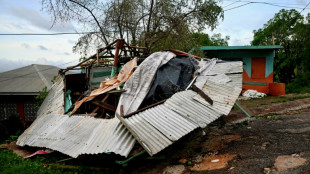
-
 Zverev survives scare to kickstart Paris Masters title defence
Zverev survives scare to kickstart Paris Masters title defence
-
Rabat to host 2026 African World Cup play-offs

-
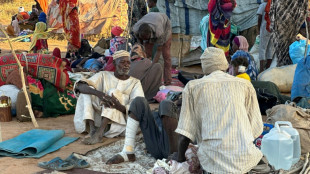 WHO urges Sudan ceasefire after alleged massacres in El-Fasher
WHO urges Sudan ceasefire after alleged massacres in El-Fasher
-
Under-fire UK govt deports migrant sex offender with £500

-
 AI chip giant Nvidia becomes world's first $5 trillion company
AI chip giant Nvidia becomes world's first $5 trillion company
-
Arsenal depth fuels Saka's belief in Premier League title charge

-
 Startup Character.AI to ban direct chat for minors after teen suicide
Startup Character.AI to ban direct chat for minors after teen suicide
-
132 killed in massive Rio police crackdown on gang: public defender
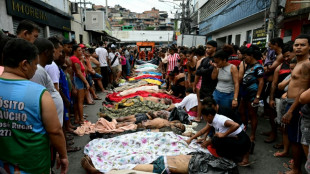
-
 Pedri joins growing Barcelona sickbay
Pedri joins growing Barcelona sickbay
-
Zambia and former Chelsea manager Grant part ways

-
 Russia sends teen who performed anti-war songs back to jail
Russia sends teen who performed anti-war songs back to jail
-
Caribbean reels from hurricane as homes, streets destroyed
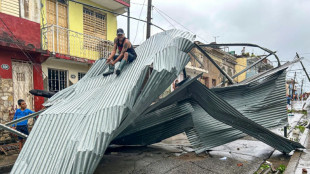
-
 Boeing reports $5.4-bn loss on large hit from 777X aircraft delays
Boeing reports $5.4-bn loss on large hit from 777X aircraft delays
-
Real Madrid's Vinicius says sorry for Clasico substitution huff
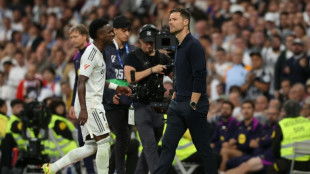
-
 Dutch vote in snap election seen as test for Europe's far-right
Dutch vote in snap election seen as test for Europe's far-right
-
Jihadist fuel blockade makes daily life a struggle for Bamako residents
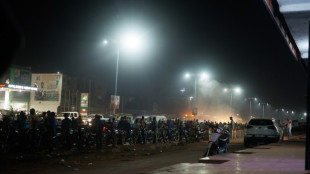
-
 De Bruyne goes under the knife for hamstring injury
De Bruyne goes under the knife for hamstring injury
-
Wolvaardt's 169 fires South Africa to 319-7 in World Cup semis
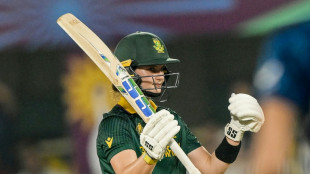
-
 EU seeks 'urgent solutions' with China over chipmaker Nexperia
EU seeks 'urgent solutions' with China over chipmaker Nexperia
-
Paris prosecutor promises update in Louvre heist probe

-
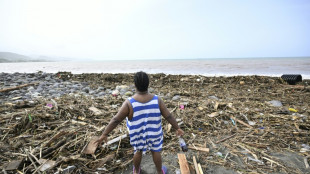 Funds for climate adaptation 'lifeline' far off track: UN
Funds for climate adaptation 'lifeline' far off track: UN
-
Record Vietnam rains kill seven and flood 100,000 homes
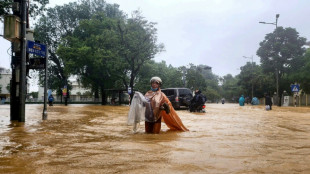
-
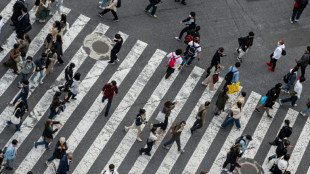 Markets extend record run as trade dominates
Markets extend record run as trade dominates
-
Sudan govt accuses RSF of attacking mosques in El-Fasher takeover
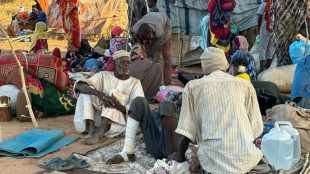
-
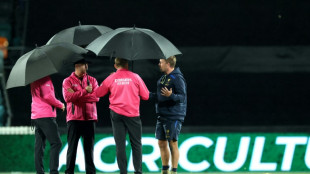 Rain washes out 1st Australia-India T20 match
Rain washes out 1st Australia-India T20 match
-
Spain's Santander bank posts record profit


Every heatwave enhanced by climate change: experts
All heatwaves today bear the unmistakable and measurable fingerprint of global warming, top experts on quantifying the impact of climate change on extreme weather said Wednesday.
Burning fossil fuels and destroying forests have released enough greenhouse gases into the atmosphere to also boost the frequency and intensity of many floods, droughts, wildfires and tropical storms, they detailed in a state-of-science report.
"There is no doubt that climate change is a huge game changer when it comes to extreme heat," Friederike Otto, a scientist at Imperial College London's Grantham Institute, told AFP.
Extreme hot spells such as the heatwave that gripped South Asia in March and April are already the most deadly of extreme events, she added.
"Every heatwave in the world is now made stronger and more likely to happen because of human-caused climate change," Otto and co-author Ben Clarke of the University of Oxford said in the report, presented as a briefing paper for the news media.
Evidence of global warming's impact on extreme weather has been mounting for decades, but only recently has it been possible to answer the most obvious of questions: To what extent was a particular event caused by climate change?
The most scientists could say before is that an unusually severe hurricane, flood or heatwave was consistent with general predictions of how global warming would eventually influence weather.
News media, meanwhile, sometimes left climate change out of the picture altogether or, at the other extreme, mistakenly attributed a weather disaster entirely to rising temperatures.
With more data and better tools, however, Otto and other pioneers of a field known as event attribution science have been able to calculate -- sometimes in near realtime -- how much more likely or intense a particular storm or hot spell has become due to global warming.
- Courtroom evidence -
Otto and colleagues in the World Weather Attribution (WWA) consortium, for example, concluded that the heatwave that gripped western North America last June -- sending temperatures in Canada to a record 49.6 C (121 F) -- would have been "virtually impossible" without human-induced climate change.
A heatwave that scorched India and Pakistan last month is still under review, Otto told AFP, but the larger picture is frighteningly clear.
"What we see right now in terms of extreme heat will be very normal, if not cool, in a 2-degree to 3-degree Celsius world," she said, referring to average global temperatures above preindustrial levels.
The world has warmed nearly 1.2C so far.
That increase made record-setting rainfall and flooding last July in Germany and Belgium that left more than 200 dead up to nine times more likely, the WWA found.
But global warming is not always to blame.
A two-year drought in southern Madagascar leading to near famine conditions attributed by the UN to climate change was in fact a product of natural variability in the weather, experts reported.
Quantifying the impact of global warming on extreme weather events using peer-reviewed methods has real-world policy implications.
Attribution studies, for example, have been used as evidence in landmark climate litigation in the United States, Australia and Europe.
In one case set to resume later this month, Saul Luciano Lliuya v. RWE AG, a Peruvian farmer is suing the German energy giant for the costs of preventing harmful flooding from a glacial lake destabilised by climate change.
A scientific assessment entered into evidence concluded that human-caused global warming is directly responsible for creating a "critical threat" of a devastating outburst, putting a city of some 120,000 people in the path of potential floodwaters.
N.Fournier--BTB

